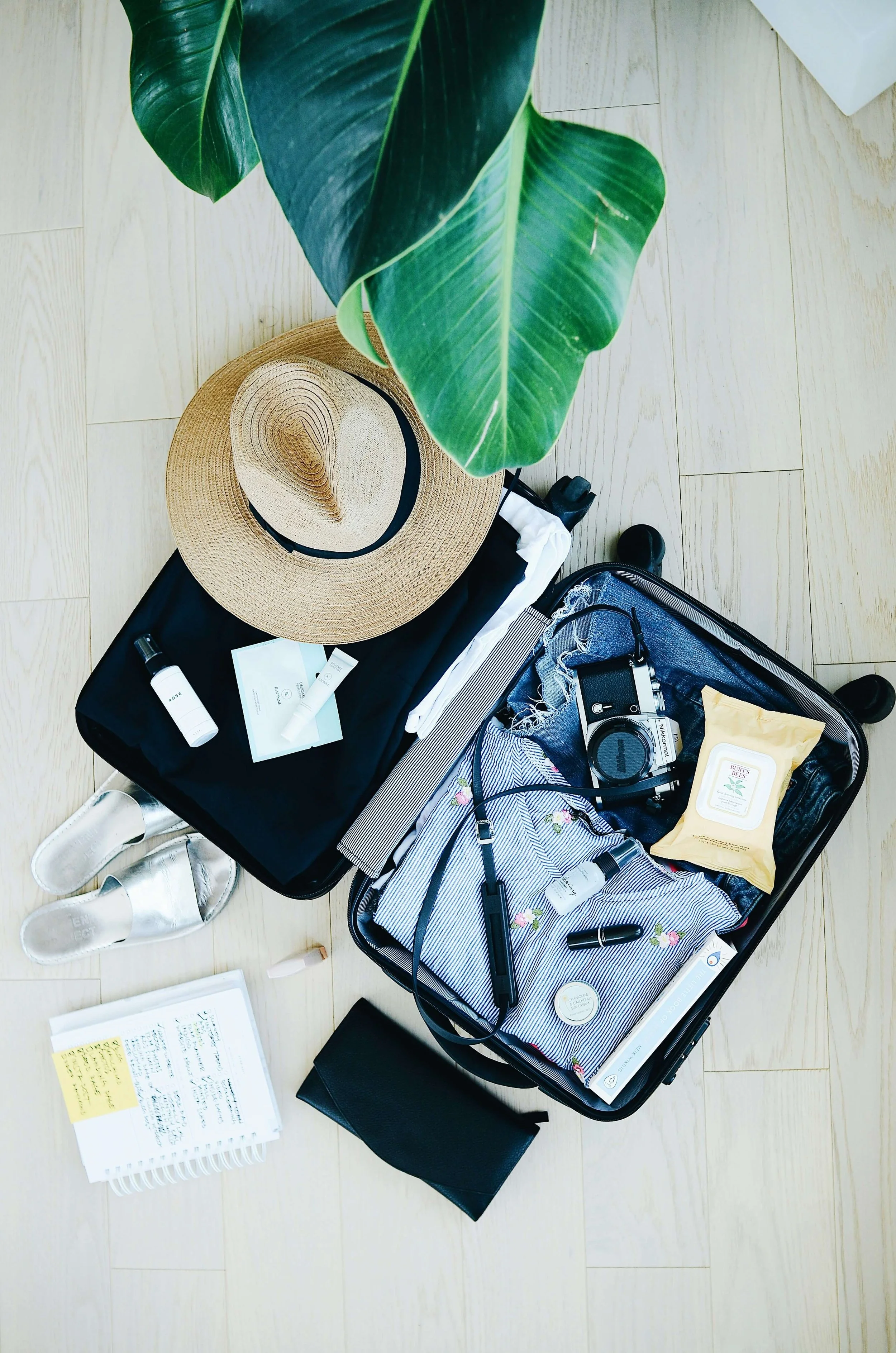How to Survive Summer Vacations: Tips for Mental Well-Being
July 14, 2025 | By Anna Allshouse
Summer vacations are usually associated with fun, excitement, and relaxation but they can also involve some worry and anxiety too. Maybe you're headed to the beach with extended family, on a road trip with friends, or simply getting away for a long weekend to escape your normal routine. While travel offers a chance to relax and recharge, it can also bring up challenges.
Whether you're someone who gets anxious before trips, hates being out of routine, feels overwhelmed by family dynamics, or struggles with body image and food, you’re not alone.
Why Vacations Don’t Always Feel Like a Sweet Escape
While vacations are often marketed as “stress-free getaways,” they can be more emotionally complex than that. Some common triggers include:
Disrupted Routines: Less structure can make it harder to stick to coping strategies or self-care routines.
Group or Family Dynamics: Traveling with others can involve tension, old patterns, or unmet expectations.
Food and Body Stress: Summer trips often revolve around meals, swimsuits, and social events, which can heighten anxiety for those recovering from eating disorders or simply struggling with body image issues.
Pressure to "feel good": You might feel guilty or confused if you’re struggling emotionally when you're “supposed” to be relaxing and having a great time.
The good news is you can enjoy a meaningful and supportive vacation without leaving your mental health at home.
Preparing Mentally and Emotionally
Preparing mentally and emotionally for a trip is just as important as packing your suitcase. Here are a few ways to ground yourself ahead of time:
Set Realistic Expectations: No vacation is perfect. There might be moments of discomfort, disappointment, or fatigue and that’s okay.
Name Your Needs: Ask yourself, What helps me feel calm, safe, and grounded? What am I anticipating being hard on this trip? Plan based on your needs, not others’ agendas.
Visualize Success: Picture yourself responding calmly to a challenge, asking for space, or making a food choice that aligns with your values. This mental rehearsal can build confidence.
Navigating Family and Social Dynamics
If you're traveling with family or a group, it's normal to feel some pressure or even dread. Here are some tips to protect your peace:
Set Clear Boundaries: You can say “no” to a group activity, leave a conversation that feels uncomfortable, or take quiet time for yourself. You’re allowed to protect your energy.
Have a Buddy: If there’s someone safe in the group, let them know what you’re navigating. Just knowing that you have someone in your corner can be grounding.
Plan Breaks and Time to Recharge: Schedule solo walks, short naps, or even screen time breaks to decompress.
Supporting Body Image and Recovery on Vacation
For those in eating disorder recovery, vacations can feel especially vulnerable. Here are a few ways to support yourself:
Stick to Your Recovery Practices: Whether it’s regular meals, a check-in with your therapist or dietitian, or journaling, do your best to stay recovery-focused.
Pack Comfy Clothes: Choose clothes that feel safe and non-triggering, even if they don’t match the “vacation aesthetic” others might expect.
Limit Body Talk: If others are commenting on their bodies or food, it’s okay to change the subject, excuse yourself, or set a gentle boundary.
Practice Affirmations or Coping Skills: Prepare a list of affirming reminders or grounding tools you can turn to when body image feels tough.
A Self-Care Packing List
Along with your sunscreen and flip-flops, consider packing these self-care essentials:
A journal or grounding object
Comfortable clothing
Headphones and a favorite playlist or meditation app
A book or podcast
A list of coping strategies that work for you
Finding Balance on Your Vacation
Vacations don’t have to be perfect to be meaningful. It's possible to feel challenged and still take care of yourself. With preparation, boundaries, and self-compassion, you can make space for rest and connection - even in moments that feel tough.
And if you’re struggling with anxiety around travel, family dynamics, or body image, therapy can be a powerful place to build support and coping skills.
At Monarch Wellness & Psychotherapy, we work with individuals navigating all of this and more. If you’re ready for support that honors your needs and empowers your growth, reach out to us. We’d love to walk with you.
Reach Out
If you’re considering professional support, we’re here to help. Please reach out to schedule a free, no-commitment consultation. There’s no fee and no obligation—just click the button below to get started.
You can also call or text us at 202-656-3681, or email us directly. Give yourself the opportunity for the support you deserve.





